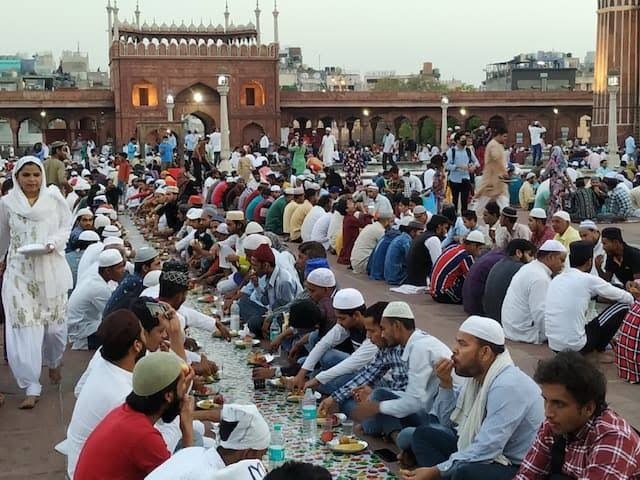
Ramadan is a month when Muslims worldwide fast from dawn to sunset. It is not just about restraining from food and drinks. It is also about nourishing the body and avoiding food that can cause discomfort to the body, especially the immune and digestive systems. It is essential to maintain a balanced and nutritious diet to ensure optimal health throughout the month.
Patriot got in touch with three Delhi-based dieticians — Priyanka Jaiswal from diet2nourish clinic, Avni Kaul from Nutriactivania clinic and Nandini Chopra, to ascertain eating tips during Ramadan.
Suhoor and Iftar planning: Suhoor also known as Sehri, the pre-dawn meal, and Iftar, the meal to break the fast at sunset, are important times for consuming nutrients. Include complex carbohydrates such as whole grains, protein sources such as eggs, dairy, or legumes, and healthy fats like nuts or avocados to provide sustained energy throughout the day.
Stay hydrated: Hydration is essential during Ramadan, particularly, when fasting for long hours. Drink sufficient water between Iftar and Suhoor (dusk to dawn) to prevent dehydration. Stay away from caffeinated and sugary drinks as they can lead to further dehydration.
Balanced meals: Make sure that your meals are balanced, incorporating all major food groups — carbohydrates, proteins, fats, vitamins, and minerals. Cut down on rice or chapatis. Avoid eating red meat. Add liquids like buttermilk, coconut and lemon water. This balance maintains energy levels, supports bodily functions, and prevents nutrient deficiencies.
Portion control: While it might be tempting to indulge in large meals during Iftar, practising portion control is vital for maintaining a balanced diet. Overeating may lead to digestive discomfort and may disrupt the fasting experience.
Include fruits and vegetables: Incorporate a variety of fruits and vegetables in your meals to get essential vitamins, minerals, and fibre. These nutrient-rich foods help in digestion, support immune function, and promote overall health.
Restrict sugary foods: Minimise the consumption of sugary and processed foods like desserts, sweets, and fried snacks. These foods provide empty calories and could lead to energy crashes and weight gain.
Healthy cooking methods: Go for healthier cooking methods like grilling, baking, or steaming instead of frying. This helps lessen the consumption of excess fats and calories while retaining the nutritional value of foods.
Go for a walk: After Iftaar or Suhoor, one should make a habit of walking for at least half an hour. So long as your intestines keep moving, digestion also happens on a fast scale.
Listen to your body: Pay attention to your body’s hunger and fullness cues. Eat slowly and mindfully, savouring each bite, and stop eating when you feel satisfied to prevent overeating.
Five quiet corners across Delhi-NCR where February evenings slow the city down, letting breeze, fading…
A solo exhibition by Anjali Mittal exploring emotion, memory and intuition through layered blue-hued paintings
The incident occurred on Saturday near Bakhtawarpur. A senior police officer said a team rushed…
V K Saxena approves 20 per cent reservation, age relaxation, and test exemption for ex-Agniveers…
The fair at Gandhi Darshan brings together emerging and senior artists, showcasing over 200 artworks…
State Names Authority approves renaming of two metro stations and modifies seven others, aligning station…